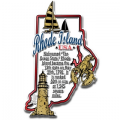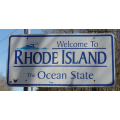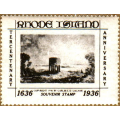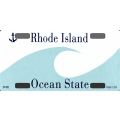Rhode Island is home to several accredited nursing schools, including four campuses of the Community College of Rhode Island system. These schools offer a broad range of nursing programs, from brief certificate courses to bachelor’s, master’s, and even doctoral degrees. We profile below the three key nursing roles in Rhode Island: certified nursing assistant (CNA), licensed practical nurse (LPN), and registered nurse (RN).
Certified nursing assistant
Rhode Island
We've organized a comprehensive list of Rhode Island nursing schools. Below you'll find information on specific nursing programs such as LPN certificates and ADN, BSN, and MSN degrees. You'll also find a profile of nursing education and careers in each major Rhode Island city.
Rhode Island nursing programs and careers
City-specific information
To select the right nursing program, it is critical first to understand the different nursing career pathways available. The three most popular nursing roles in Providence, Rhode Island, are certified nursing assistant (CNA), licensed practical nurse (LPN), and registered nurse (RN).
The master of science in nursing (MSN) degree is an advanced qualification for nurses to further their careers in specialized fields like nursing administration, nursing education, and family practice nursing. These specializations offer attractive salaries. For example, Rhode Island’s nurse practitioners earn a median annual salary of $99,560. Read below for detailed information on two of the state’s excellent MSN programs.
Rhode Island College
Rhode Island has two types of bachelor of science in nursing (BSN) programs: prelicensure programs that prepare students for the NCLEX-RN national examination, and RN-to-BSN programs that enable existing registered nurses (RNs) to earn a bachelor’s degree. Baccalaureate programs have grown in prominence as nursing employers place more emphasis on BSN education. Indeed, while Rhode Island’s RNs earn a median annual salary of $74,280, those with BSN degrees typically earn top-quartile pay of $86,610 or more. We highlight below several of the state’s best BSN programs.
Rhode Island has several associate’s degree in nursing (ADN) programs focused on preparing students for initial registered nursing (RN) licensure. This degree program has a relatively short duration, generally requiring just two years of full-time study. Some campuses offer evening classes for students who juggle study and work. The median annual income for Rhode Island’s RNs is $74,280. Below we profile two of Rhode Island’s accredited ADN programs in depth.
New England Institute of Technology
Rhode Island’s shortage of nurses is driving increased demand for new licensed practical nurses (LPNs) throughout the state. Most LPN certificate programs have a short duration, ranging from 12-18 months in length. LPNs make up around 11% of Rhode Island’s nurses, and they earn an attractive median annual salary of $53,060. The profession has been ranked one of Rhode Island’s top 50 occupations with the potential for future growth.
Many students worry about the financial cost of pursuing higher education. Indeed, the all-in cost of any post-secondary program can be relatively steep, since it encompasses tuition and fees, books and supplies, room and board, and other living expenses. However, students can manage these costs through several critical decisions, including the type of program (certificate vs. degree) and institution (public vs. private) in which they enroll. We profile below several of Rhode Island’s nursing schools by cost of attendance.
Salve Regina University
While public institutions of higher education can offer low tuition costs, private colleges also boast several benefits. Many carry the prestige of a rich academic history, and most offer smaller class sizes than their public counterparts. Take a look at some of the best private nursing schools in Rhode Island below.
New England Institute of Technology
If the financial cost may deter you from attending nursing school, you should consider a public college or university. These institutions are funded by the state government and thus have lower tuition for in-state residents. Below we’ve profiled several of Rhode Island’s best public nursing schools.
Community College of Rhode Island
Rhode Island is home to several accredited nursing schools, including four campuses of the Community College of Rhode Island system. These schools offer a broad range of nursing programs, from brief certificate courses to bachelor’s, master’s, and even doctoral degrees. We profile below the three key nursing roles in Rhode Island: certified nursing assistant (CNA), licensed practical nurse (LPN), and registered nurse (RN).
Certified nursing assistant









